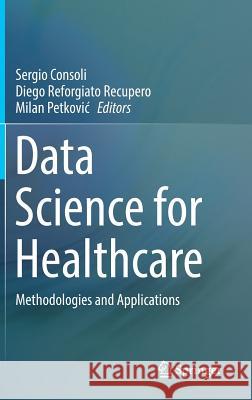Data Science for Healthcare: Methodologies and Applications » książka
topmenu
Data Science for Healthcare: Methodologies and Applications
ISBN-13: 9783030052485 / Angielski / Twarda / 2019 / 367 str.
Kategorie:
Kategorie BISAC:
Wydawca:
Springer
Język:
Angielski
ISBN-13:
9783030052485
Rok wydania:
2019
Wydanie:
2019
Ilość stron:
367
Waga:
0.70 kg
Wymiary:
23.39 x 15.6 x 2.24
Oprawa:
Twarda
Wolumenów:
01
Dodatkowe informacje:
Wydanie ilustrowane











